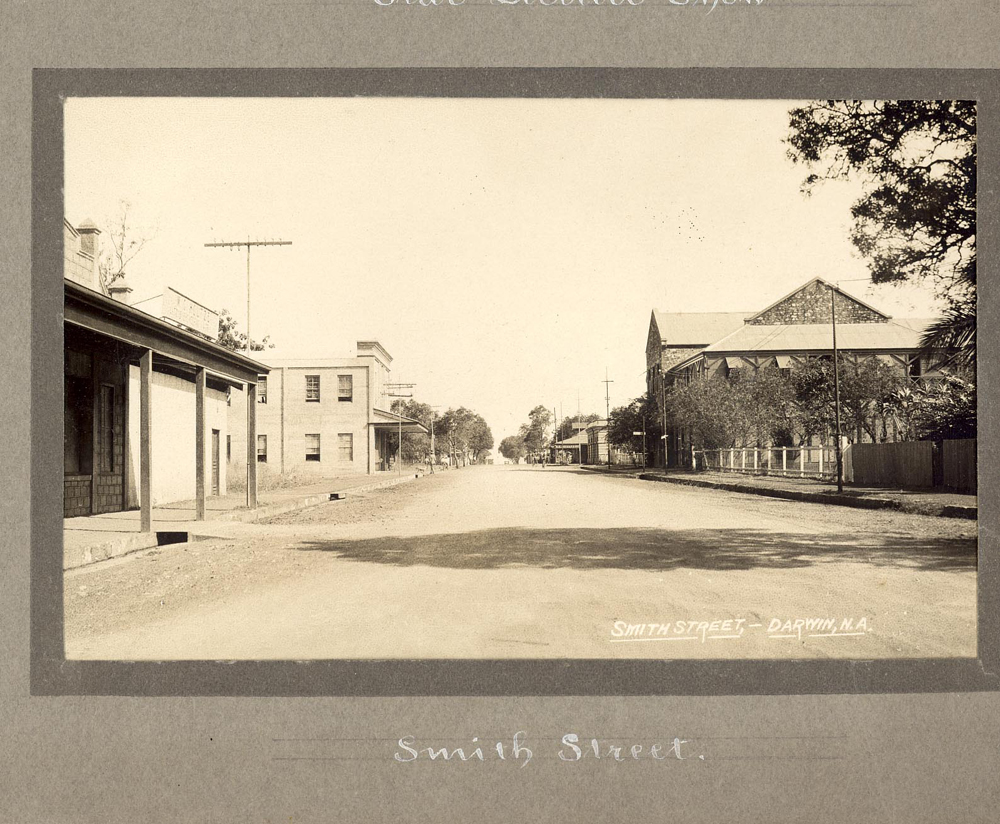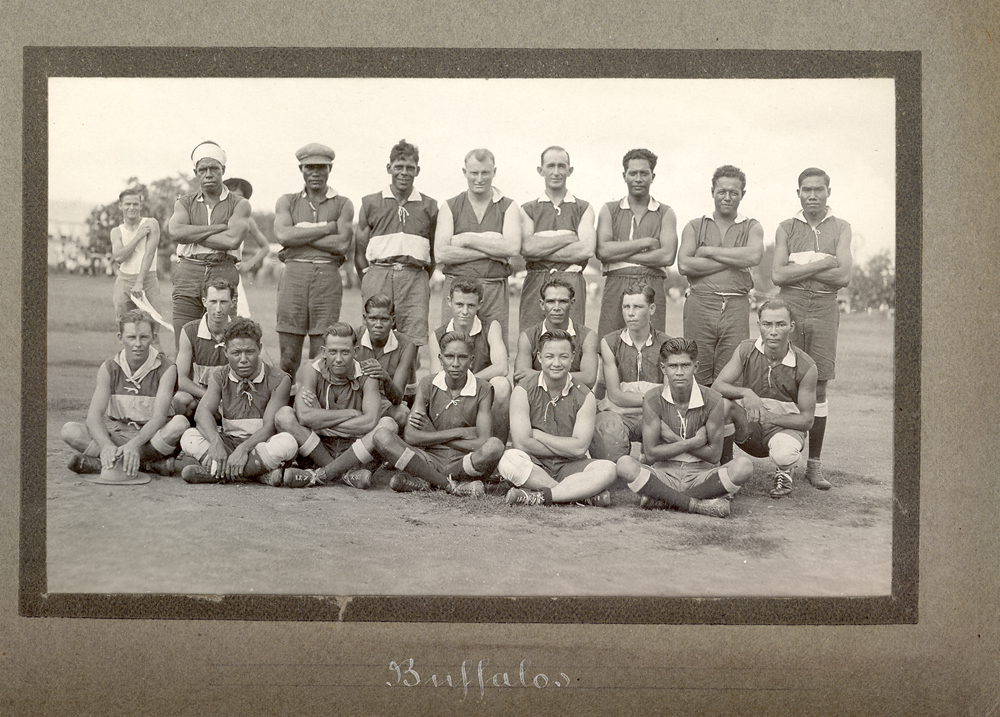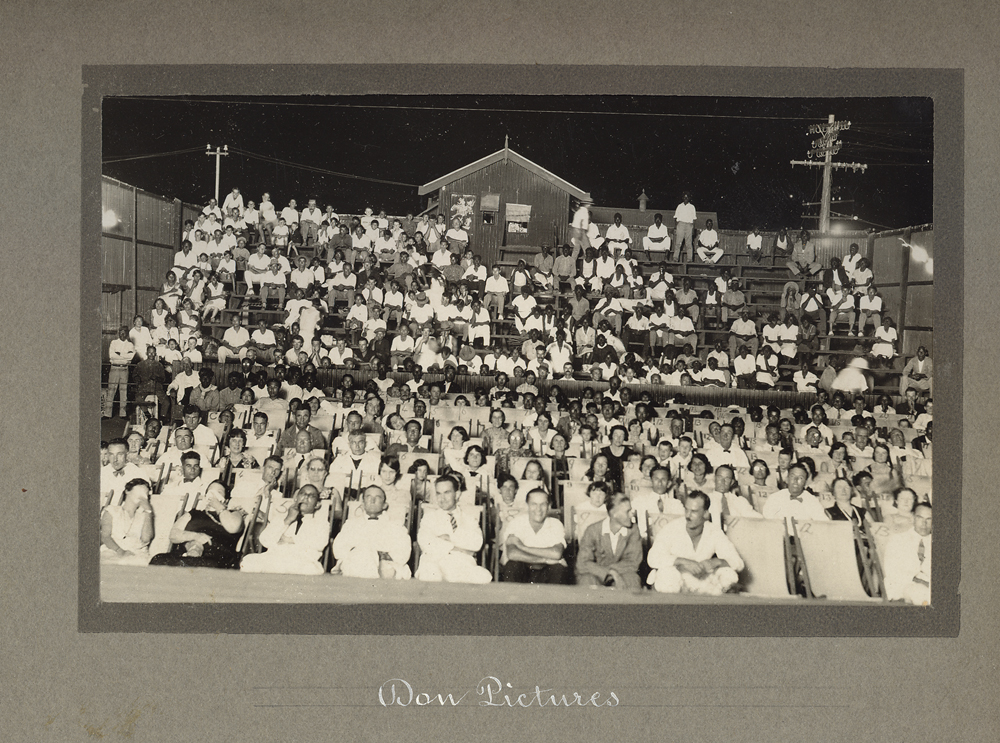History Consultancy Services
—
Backgorund image: BUFFALOES, NTAS, WILSON, NTRS 335, ITEM 342
Research
—
Since 1990 I have been researching in the Northern Territory in the disciplines of education, sport, recreation, leisure, Aboriginal affairs and history. As such I am very well acquainted with Northern Territory and Australian libraries, archives and government agencies where Northern Territory history primary and secondary source material may be found. This includes the administrative protocols and processes that are such an important component of successfully completing history research projects.
In 2002 I began developing my own Northern Territory Sport and Leisure database. As a result of meticulous research this unique tool documents the names of 1000s of Northern Territorians who have participated in sports and social events between 1869 and 1958 (as reported in Northern Territory newspapers and other archival sources). This evolving database provides me with the means to immediately locate important data on people, places and events in Northern Territory history.
Image: First tennis court in Alice Springs, NTL, Smith collection, ph0763_0037
Writing
—
I have a solid publication record across a number of disciplines. My experience spans both academic papers, government reports and publishing historical texts. It also includes writing to specific formats and style demanded by clients.
Photographs
—
I have a long interest in historical photographs. The identification, analysis and interpretation of historical photographs is an important part of my own historical research and writing. As a consequence I have an excellent knowledge of public photograph collections in the Northern Territory and Australia.
My experience enables me to identify people and places in historical photographs across the Northern Territory. If you wish to find historical photographs related to a historical project, current location, business or family I can assist in identifying where they can be sourced and carry out the necessary administration to obtain them.
Oral History
—
In the Northern Territory oral history is an essential part of our shared collective memory. Northern Territory history is not always well documented so we are often reliant on those who have memories of important people, places and events.
Oral history interviews can be an important part of history research whether it be a person’s biography, family, organisational or sports history.
My experience
I have over 10 years experience in planning, conducting and archiving oral history interviews. As a member of Oral History Australia (OHA) I follow the OHA code of ethics. I have completed interviews on many different aspects of the Northern Territory’s social and political history including World War II, immigration, sport, the arts, pastoralists, unions, community life and family history.
An oral history interview is a recording between an interviewee and interviewer who both have the intention of creating a permanent record to contribute to an understanding of the past.
What is oral history?
An oral history interview is designed to seek an in-depth account of personal experience and reflections in their own voice and in their own time. An oral history interview can only occur with the interviewees voluntary informed consent and the understanding that they can withdraw from the interview at anytime or refuse to answer questions. Consent can be given either by signing consent form or a recorded statement of consent.
An oral history interview is a partnership between the interviewer and interviewee who have equal status in the process. A good interview is well planned to ensure that it provides the best opportunity and historical context for the interviewee to relate and reflect on their experiences.
The resulting documents
An oral history interview results in the recording of the oral history interview itself and it may also include documents such as a time marked summary or verbatim or edited transcript. The oral history interview is intended to be preserved for future use by researchers and others which means it must be archived appropriately governed by the interviewee’s consent.





